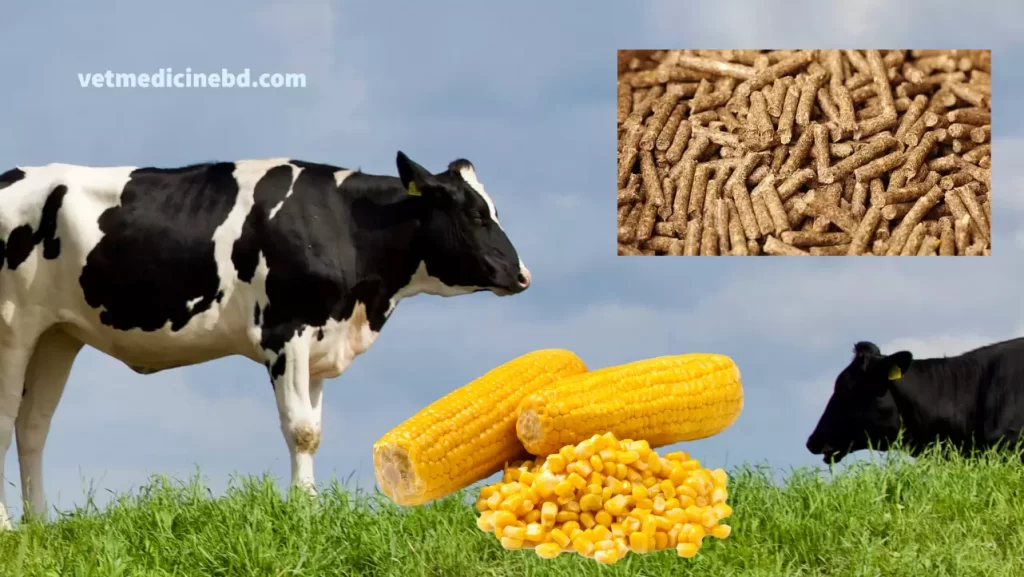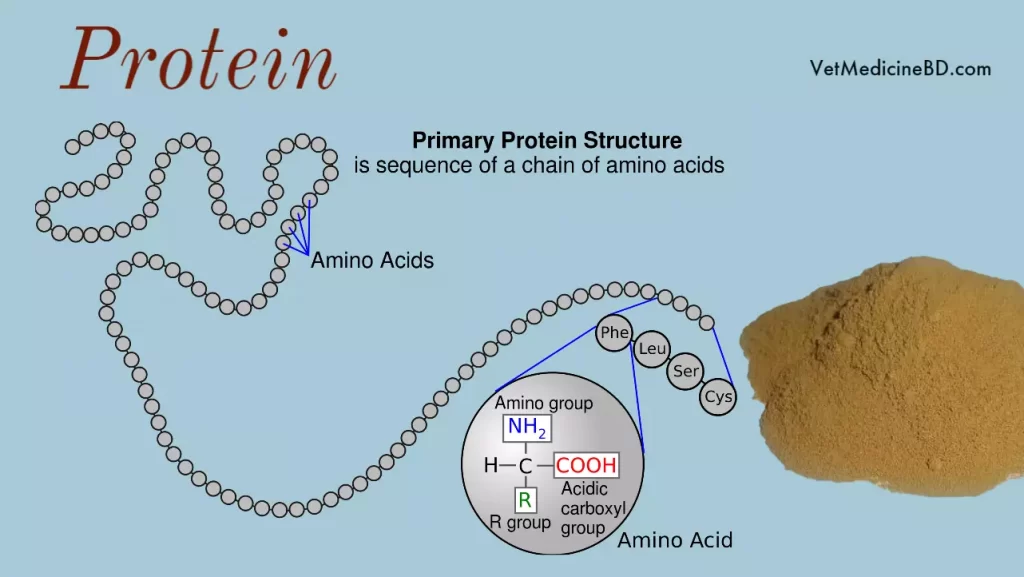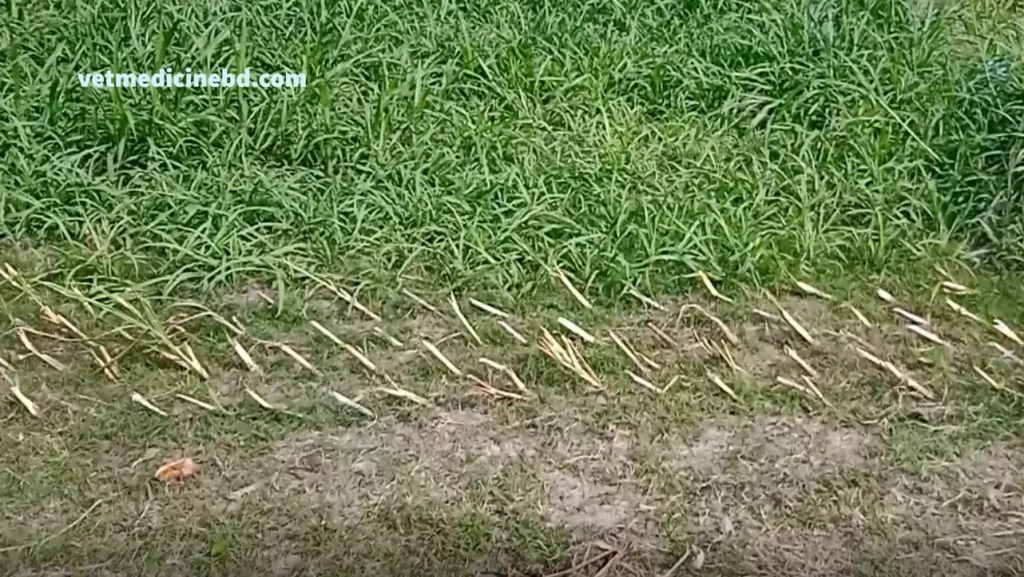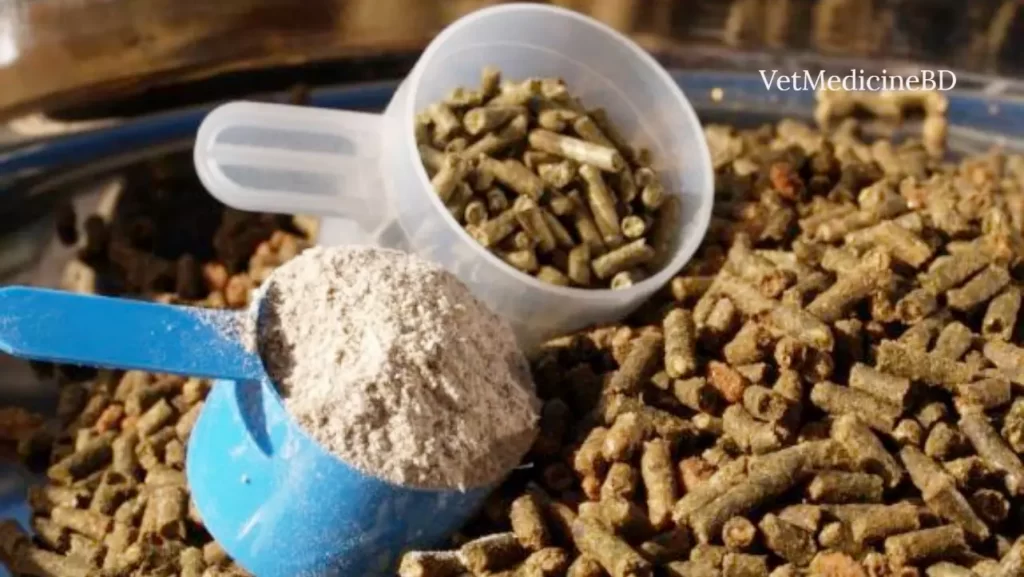Nutrition of animal feed and its functions. Animal feed is a very important factor in running a profitable farm. Animal feed directly involves two things, firstly production and secondly expenditure. If the animal feed is not of proper nutritional quality according to its requirements, the production is disrupted and at the same time, the animal faces various diseases. On the other hand, the farm has to spend the most on food management.
Table of Contents
Nutrition of animal feed
A total of six nutrients are present in animal feeds. The following 6 nutrients must be in demand during feed preparation.
- Carbohydrates
- Protein
- Oil
- Vitamins
- Minerals
- Water
Analyzing the diet of every animal, including humans, all these six nutrients are found. It is essential for livestock farmers to have a clear understanding of these nutrients. We tried to do that.
We often see farmers overestimating one or more nutrients in the feed. Some give importance to protein and some to vitamins, which is incorrect. We must treat all nutrients equally and with importance.
Carbohydrates
Carbohydrates are important nutrition of animal feed. If the amount of sugar in the feed is less than the requirement, the animal gets less energy from the feed, which results in impaired production.

Functions of carbohydrates
- Carbohydrates act as fuel for the animal body, i.e. heat and energy (metabolic energy) are produced as a result of the combustion of sugars or carbohydrate nutrients.
- Carbohydrates help animals produce eggs, milk and meat. When the body consumes more carbohydrates than it needs, the excess carbohydrates are converted into fat.
- Carbohydrates produce energy in the body. 4.2 kcal of heat energy is produced by burning one gram of sugar.
A source of carbohydrates
Wheat, maize, wheat bran, rice bran, barley, sorghum, molasses, rice husk, rice, barley, etc.
Protein
Protein is another important nutrition of animal feed. Protein plays a direct role in the production of meat, milk, or eggs. Animals synthesize essential amino acids from proteins.

Protein functions as a nutrient
- Every living cell needs protein for its structure and function.
- Prevents body decay and helps in growth.
- Proteins are used in part to regulate the production of energy from proteins.
- Protein fulfills the amino acid needs of the body.
- If the animal consumes an excess amount of protein like sugar and fat, it is burned to produce energy in the body. One gram of protein produces 4.2 kcal of heat energy.
Protein sources
Fish meal, dry meal, meat and bone meal, poultry meal, DDGS, CGM, feather meal, blood meal, mustard meal, sesame meal, coconut meal, almond meal, soybean meal, protein concentrate, etc.
Fat
Fat is an important part of the animal body. A certain amount of oil or fat must be present in the animal’s body. The requirement of oil in animal feed is met through the oily feed.
Functions of fat in the animal body
- Fat is stored in the body of animals as stored energy.
- Stored fat provides energy to the body. It produces 2.25 times more energy than carbohydrates and fats. 1 gram of fat produces 9.3 kcal of heat energy in the body.
- Fat acts as the core of important organs. It protects the body from different types and helps regulate body temperature.
Sources of dietary fat
Various oils, soybean oil, palm oil, oilseeds, fat powder, etc.
Vitamins
Vitamins are very important nutrition of animal feed. Vitamins play a major role in biological activities in the animal body. If the animal does not get the vitamins it needs from the food, various important biological functions of the body are disrupted and production is reduced.
Function of vitamins
Helps increase animal production.
Aids in metabolism during energy production in the body.
Helps in improving vision, skin smoothness, bone formation, and egg fertility.
It helps in the production of certain stimulants.
Helps in blood clotting.
Helps in fetal growth.
Prevents night blindness, infertility, rickets, osteomalacia, etc. due to malnutrition.
Source of vitamins
Raw grass, various vegetables, yeast, liver oil and artificially prepared vitamin premix etc.
Minerals
Minerals are another very important nutrient in cattle. Although they are needed in very small amounts in the animal’s body, the lack of them can cause serious damage to the animal.

The function of minerals
- It produces beneficial and essential salts in the body.
- Chicken makes eggshells.
- Forms and builds bones of cattle and poultry.
- Increases the efficiency of oxygen absorption in the blood.
- Helps in the production of red blood cells.
- Prevents various diseases caused by nutritional deficiency.
- Maintains osmotic pressure inside cells.
- Aids in the digestion of nutrients.
Source of minerals
Common salt, oyster meal, bone meal, eggshell, limestone, manganese salt, di-calcium phosphate, mineral premix etc.
Water
Water is an important element for every living thing. It is said that the other name of water is life. We need to provide enough fresh water for our livestock. Animals not getting enough water is a disease.
The function of water
Acts as an emollient and cleansing agent for various parts of the body.
It gives firmness and elasticity to the body cells.
It acts as an area for the absorption of nutrients and excretion of waste products.
It maintains the equilibrium of the body’s absorptive heat.
Regulates body temperature.
Water is a good medium for ion transfer. Because water is broken down into oxygen and hydrogen ions, which can easily combine with other elements.
Water acts as an immune system in the animal body.
Accelerates the chemical action of stimulants.
Helps transport absorbed food material to different parts of the body.
Water acts as a constituent of the aqueous phase of blood.
Regulates the body’s physiological and biochemical functions.
Essential for cell nutrition and transports nutrients to cells within the body.
Source of clean water
Shallow tubewell, deep tubewell, well or bore water, filtered supply water etc.
Read more: Rice bran for animal feed

